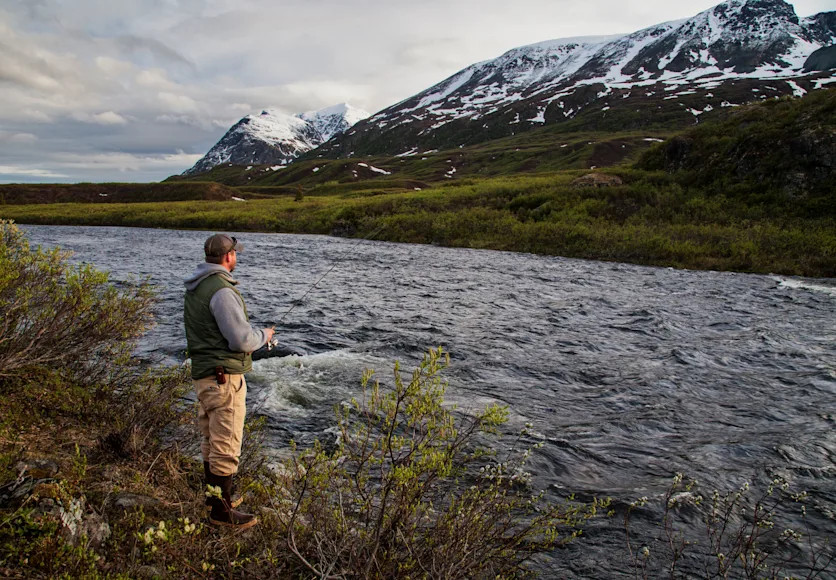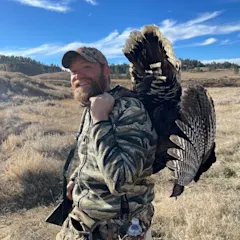Late on the night of June 11, the Senate’s Energy and Natural Resource Committee released its updated portion of the federal budget bill. A previous version of the bill in the House ignited a firestorm with hunters and anglers after it proposed the sell-off of some 500,000 acres of federally managed public lands in Utah and Nevada—a provision that had to be scrapped before the bill could pass a full House vote. Now, the wildly unpopular land sales are back on the table, and they're bigger than ever.
The revised bill targets Bureau of Land Management and US Forest Service lands in 11 Western states—Alaska, Arizona, California, Colorado, Idaho, Nevada, New Mexico, Oregon, Utah, Washington, and Wyoming—with what it calls "prudent mandatory sale."
Some of the targeted lands include checkerboarded, or land-locked parcels as well isolated tracts that the provision's authors say are "inefficient to manage." If passed, this portion of the federal budget bill would force public land sell sales at "fair market value" no later than 5 years after the bill's signing.
Stark condemnations from hunting-and-fishing conservation groups began rolling in shortly after the news was announced. “The Senate is considering a bill that could allow for the sale of several million acres of our shared public lands," said Chris Wood, President and CEO of Trout Unlimited, in statement shared with Field & Stream. "They are the sources of the finest fish and wildlife habitat and fishing and hunting in the nation. They represent most of the land that any of us will ever own, and importantly, pass on to our kids and grandkids. [It's] an affront to common sense and a direct threat to America’s land legacy.”
The Theodore Roosevelt Conservation Partnership (TRCP) chimed in with similar sentiments, saying the Senate's budget bill would sell off millions of acres of public hunting and fishing grounds under the false pretense of affordable housing. “Hunters and anglers have made it clear that reconciliation is not the appropriate vehicle for public land sales,” said TRCP president and CEO Joel Pedersen. “The Senate proposal sets an arbitrary acreage target and calls for the disposal of up to six times more land than was proposed in early versions of the House budget reconciliation bill. If passed, sportsmen and -women would lose access to large tracts of public land.”
In a statement posted to Instagram, Backcountry Hunters & Anglers (BHA) said the budget proposal also paves the way for a previously-denied industrial mining road through Alaska's Brooks Range known as the Ambler Road—another provision that was stripped from the House version of the bill after hunters and anglers pushed back. It also permits oil and gas drilling in the Arctic National Wildlife Refuge and reverses reforms that prevent speculative oil and gas leasing on public lands. "This is betrayal of our public lands legacy," BHA said.
On June 14, the Rocky Mountain Elk Foundation condemned the land sell-off plans as well. "The Rocky Mountain Elk Foundation is steadfast in our long-standing position that public lands stay public and need to be accessible," the organization wrote in an Instagram post. "RMEF is very concerned about the federal land sales provision included in Chairman Mike Lee’s energy and natural resources section of the pending budget reconciliation bill and will continue to work to remove that measure from the legislation."
Public Land Fire Sale—By The Numbers
Beginning on page 33 of its 69-page budget proposal, the Senate's Energy and Natural Resource Committee writes that the Secretary of Agriculture, acting through the Chief of the Forest Service, must "dispose of all right, title, and interest" to up three-quarters of a percent—the number can't be less than .5 percent and can't exceed .75 percent—of all National Forest lands in the United States. Currently, USFS manages roughly 193 million acres.
The Bureau of Land Management—which manages 245 million acres—would be required to sell a similar amount of the lands that it holds in trust for the American people. While certain areas like National Monuments and federally designated wilderness areas could be spared, TRCP says that, when you add it all up, the Senate's proposal will put somewhere between 2 and 3 million acres on the chopping block.
Though specific parcels haven't been shared with the public, TU's Public Lands Policy Director Corey Fisher tells F&S that the sell-off would hit hunters and anglers particularly hard. "These are the lands that we use to access rivers and streams. They're the places where we turkey hunt, and the winter ranges for our big game herds," says Fisher. "These are the sportsmen's lands that they're trying to sell off. These places have all the things that hunters and anglers value most. But they're just going to be disposed of with no public comments, no consideration for hunting, fishing, and wildlife habitat? It's the most egregious piece of legislation I've seen in my 20-year career."
Fisher says that if the bill passes in its current form, it will set the stage for future public land sell offs in regions outside the West. "This will just be the beginning," he says. "There's a lot of Forest Service land throughout the upper Midwest and the East—and that's going to be the next shoe to fall. Places like Superior National Forest in northern Minnesota, the Chequamegon-Nicolet National Forest in Wisconsin's Northwoods, and the Pisgah National Forest in western North Carolina will be next."
For now, TU, BHA, TRCP, and a slew of other conservation groups are urging anyone who cares about public land access, or the future of public lands in America, to contact their Senators directly via action portals or at the Capitol Switchboard phone number (202-224-3121). "If a broad enough coalition of Senators from across the country stands up to leadership and says, 'We're not going to vote for a budget bill that includes any of these land sales, we can get it taken out," Fisher says. "But it's going to take a lot of pressure."


